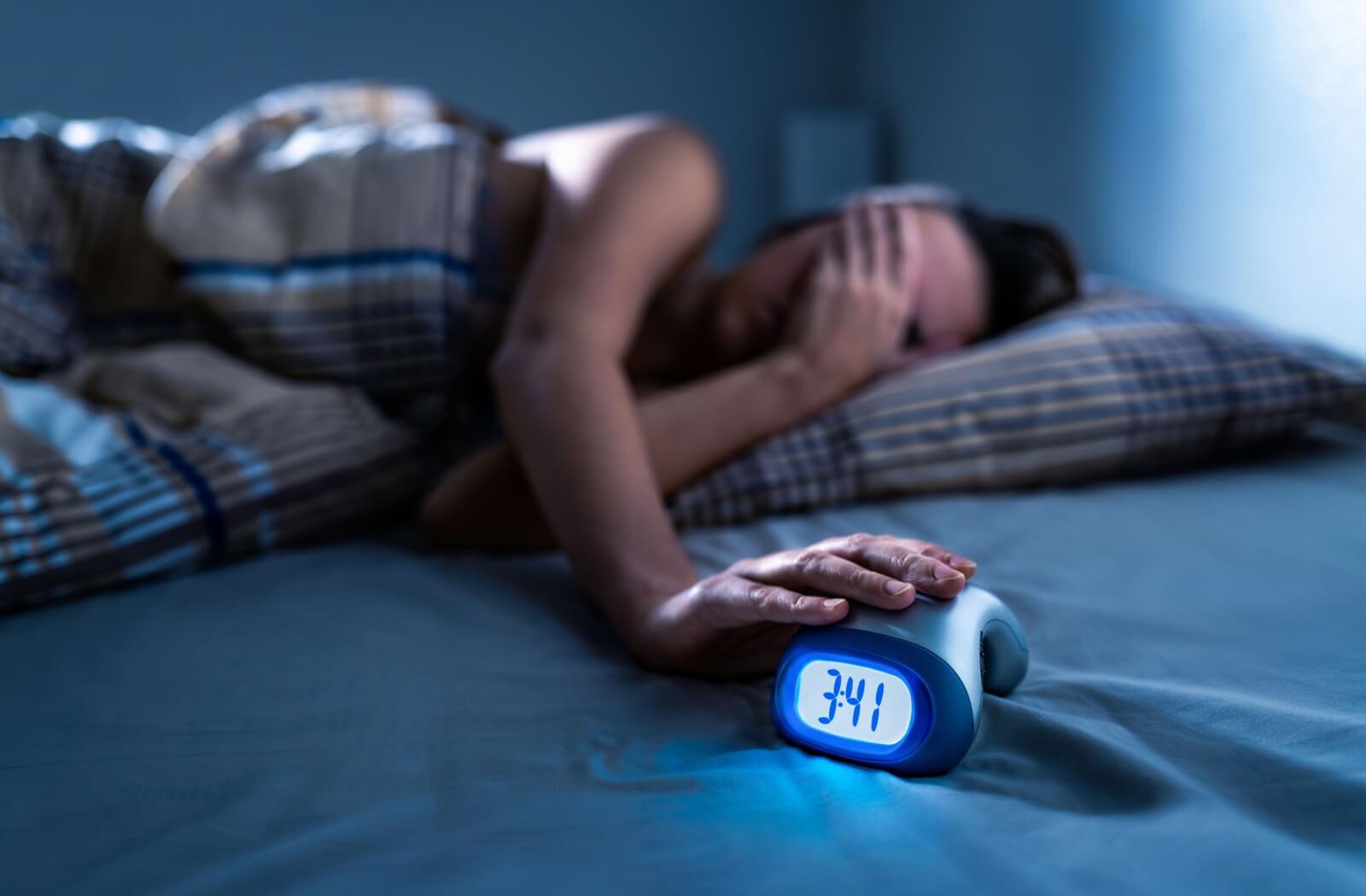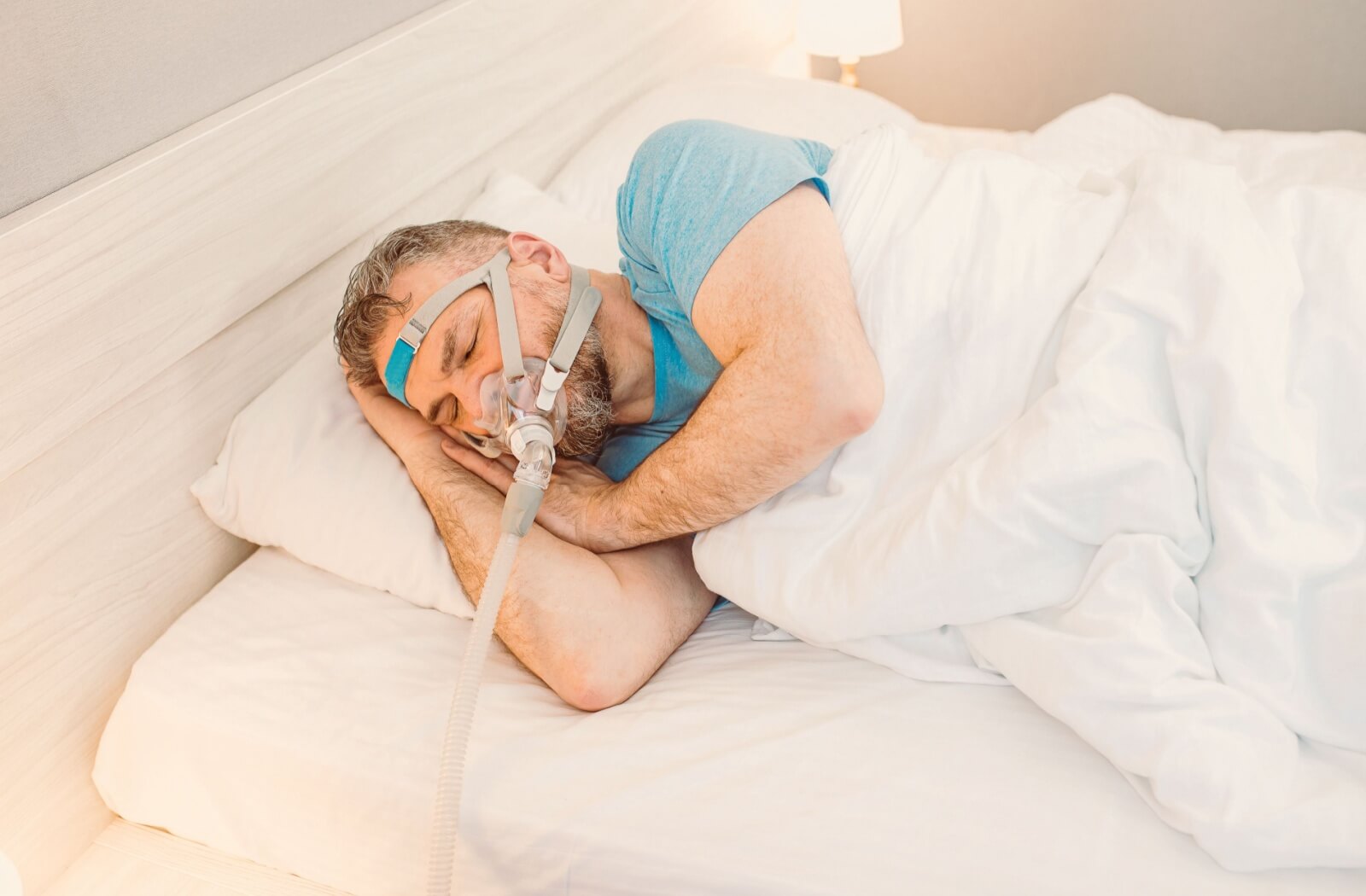Are you constantly tired, even after a full night's rest? You might be one of the many people affected by sleep apnea.
But have you ever wondered if sleep apnea could be genetic? It turns out that some of your risk for developing sleep apnea is inherited.
Your family dentist can help diagnose and treat sleep apnea.

Understanding Sleep Apnea
Sleep apnea is a sleep disorder in which breathing temporarily stops or is significantly reduced during sleep. This disruption often leads to frequent awakenings and a drop in oxygen levels.
The result? A myriad of issues ranging from loud snoring to an increased risk of severe health conditions like heart attack or stroke.
It's crucial to recognize the signs of sleep apnea, including:
- Persistent snoring
- Pauses in breathing
- Insomnia
- Lack of energy
- Irritability
If you or someone close to you experiences these symptoms, it might be time to get checked for sleep apnea.
There Are 2 Types of Sleep Apnea
Sleep apnea comes in two different varieties:
- Obstructive sleep apnea (OSA) is characterized by repetitive episodes of breathing cessation due to upper airway collapse. This often results in excessive daytime sleepiness and is linked to increased cardiovascular risks. The most common treatment involves continuous positive airway pressure (CPAP) therapy, which helps keep the airway open during sleep.
- Central sleep apnea (CSA), unlike OSA, isn’t caused by airway obstruction, but by a lack of respiratory effort. It’s often harder to diagnose, and can lead to subtle symptoms like morning headaches and daytime fatigue. Treatment typically involves lifestyle changes and medications tailored to the individual's needs.
Factors Contributing to Sleep Apnea
Sleep apnea doesn't just come out of nowhere. Several factors can increase the risk of developing the condition, including:
- Age: Natural changes in fatty tissue near the neck and tongue as you age can increase your risk.
- Family History: Genetic conditions like congenital central hypoventilation syndrome can make you more prone to CSA.
- Lifestyle Habits: Drinking alcohol and smoking can affect how your brain controls sleep and breathing.
- Opioid Use: Opioids can disrupt how your brain regulates sleep.
- Other Health Conditions: Issues like obesity or chronic respiratory diseases can influence sleep apnea development.
How to Treat Sleep Apnea
Treating sleep apnea involves a multifaceted approach that often combines lifestyle changes, medical devices, and sometimes surgery. Your specific treatment plan can vary greatly depending on the severity of the condition, its underlying causes, and your overall health. Here are some commonly recommended treatments for sleep apnea:

Positive Airway Pressure Devices
The most common method for treating obstructive sleep apnea is the use of positive airway pressure (PAP) devices. These machines deliver air through a mask to keep the sleeper's airway open during sleep. Continuous positive airway pressure (CPAP) is the most frequently prescribed PAP device.
Oral Appliances
For mild to moderate OSA, a dental or oral appliance designed to keep the throat open may be recommended. These appliances can help advance the position of your jaw or tongue to increase the size of the upper airway during sleep.
Lifestyle Changes
In cases where lifestyle factors significantly contribute to sleep apnea, doctors often recommend changes such as losing weight, quitting smoking, or altering sleeping positions. Reducing alcohol consumption and avoiding opioid medications may also be advised.
Surgery
When other treatments are ineffective or not suitable, various surgical options might be considered to remove or reduce tissue that blocks the airway. In more complex cases, procedures like jaw repositioning may be explored.
Supplemental Oxygen
In some cases of central sleep apnea, using supplemental oxygen while sleeping can help ensure that the body gets enough oxygen during night-time disruptions in breathing.
Adaptive Servo-Ventilation
This advanced form of PAP device learns and adapts to a person’s normal breathing pattern, and stores this information to regulate breathing during sleep.
Always consult with a healthcare professional before starting any new treatment regimen for sleep apnea.
How Your Family History Might Impact Your Risk of Sleep Apnea
While lifestyle and health factors play a significant role, genetics can also be a critical factor. Studies suggest that up to 40% of obstructive sleep apnea cases may be hereditary.
The shape and size of the skull, face, and upper airway, often inherited traits, determine an individual's risk for developing OSA. However, having a family history doesn't mean you're destined to develop the condition. Monitoring your risk factors is essential regardless of family history.
Take the First Step Towards Better Sleep Health Today
If you suspect that you have a hereditary form of sleep apnea, it’s important to seek proper diagnosis and treatment.
Our team at the Wildwood Family & Cosmetic Dentistry is here to help you address your sleep health concerns. Don’t be discouraged; discussing and exploring your sleep health is the first step towards better sleep. Contact our team today to get back on track to optimal health.
By understanding the hereditary factors and taking proactive steps, you can manage sleep apnea effectively. Your path to restful nights and brighter mornings starts here.